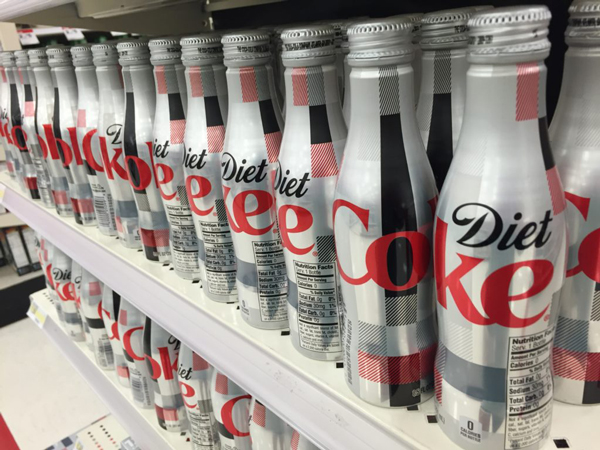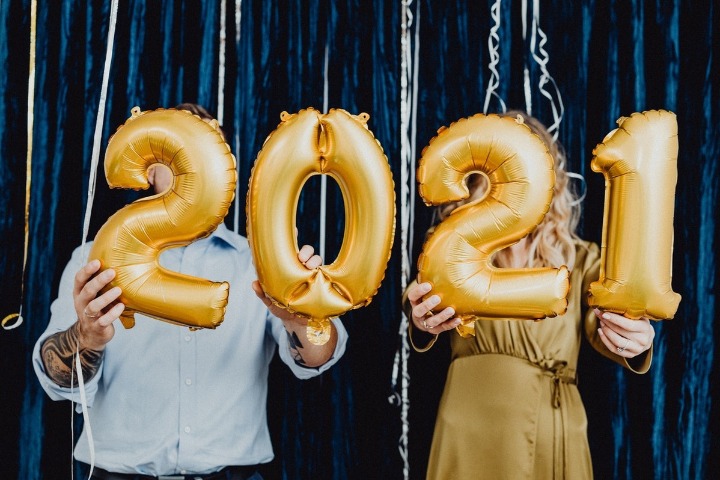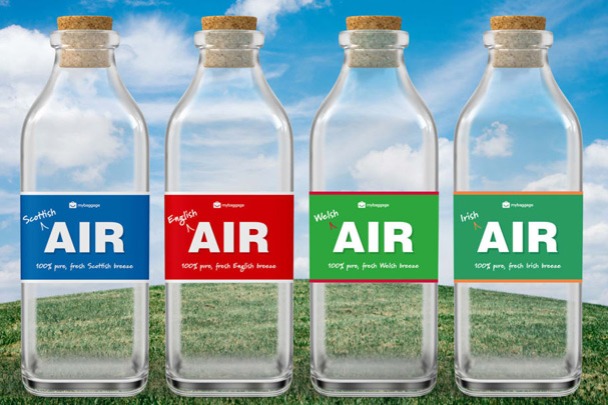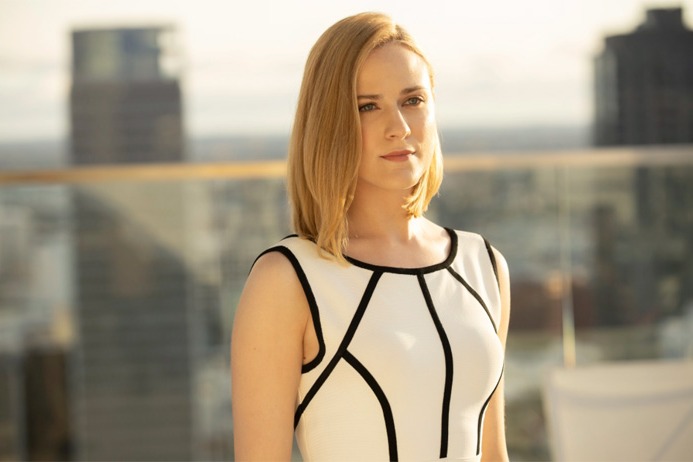无糖饮料没你想的健康 或增加中风痴呆风险
每天摄入1瓶以上无糖饮料的成年人中风或患痴呆症的风险要增加3倍。
相比于普通含糖饮料,无糖饮料以人工甜味剂代替糖分、卡路里低,因此被许多人视为一种健康的选择。但最新研究发现,每天摄入1瓶以上无糖饮料的成年人中风或痴呆的风险比普通人要高出3倍。科学家们表示,目前尚未发现无糖软饮和痴呆症之间的潜在联系,但无糖饮料不应被视为更加健康的选择。
Adults who have at least one diet drink a day are three times more at risk from a stroke or dementia, research shows lately.
最近的研究显示,每天摄入1瓶以上无糖饮料的成年人中风或患痴呆症的风险要增加3倍。Scientists say they should no longer be regarded as the healthier alternative and urge the public to stick to water or milk.
科学家们表示,无糖饮料不应该再被视为更加健康的选择,并呼吁公众坚持喝水或牛奶。Their study of almost 4,400 adults also suggests diet drinks are more likely to cause strokes and dementia than those full of sugar.
他们对约4400名成年人进行了研究,结果表明,无糖饮料比全糖饮料更容易导致中风和痴呆症。There was no link between sugary beverages and either of the illnesses - although the researchers aren't encouraging us to drink them either.
含糖饮料和这两种疾病之间并无关联,不过,研究人员也不鼓励人们喝含糖饮料。The team of scientists from Boston University believe the artificial sweeteners including aspartame and saccharine maybe affecting the blood vessels, eventually triggering strokes and dementia.
来自波士顿大学的科学家团队认为,阿斯巴甜、糖精等人工甜味剂可能会对血管产生影响,最终引发中风和痴呆。Diet drinks account for a quarter of the sweetened beverages market but there is growing evidence they are not as healthy as previously thought.
市面上1/4的甜味饮料是无糖饮料,但是越来越多的证据表明,它们并不像人们以前认为的那样健康。A major review in January by Imperial College London researchers found they were no better at aiding weight loss than full fat drinks.
1月份,伦敦帝国理工学院的研究人员在对主要研究进行回顾总结时发现,与全脂饮料相比,无糖饮料在减肥方面并没有更好的效果。In fact the authors suggested they were encouraging obesity by triggering the sugar receptors in the brain, making us crave sweet food.
研究人员认为,事实上,无糖饮料会刺激我们大脑中的糖分接受区域,让我们更渴望甜食,从而导致肥胖。In this latest study - published in the American Heart Association's journal Stroke - researchers looked at 4,372 adults over the age of 45.
这项最新的研究报告发表在美国心脏协会杂志《中风》上,研究人员调查了4372名45岁以上的成年人。They had filled in detailed questionnaires on their food and drink intake in the 1990s and were then tracked for ten years.
他们填写了详细的调查问卷,内容包括他们从上世纪90年代以来十年间的饮食摄入情况。The results showed that adults who had one or more diet drink a day were 2.9 times more likely to develop dementia and 3 times more at risk of strokes compared to those who virtually none at all.
结果表明,那些每天摄入1瓶以上无糖饮料的成年人患痴呆症的几率比几乎没有摄入无糖饮料的人要高出2.9倍,而中风的风险要高出3倍。Matthew Pase, senior fellow in the department of neurology at Boston University School of Medicine, said: 'Our study shows a need to put more research into this area given how often people drink artificially sweetened beverages.
波士顿大学医学院神经病学系高级研究员马修•佩斯说:“我们的研究表明,考虑到人们摄入人工增甜的无糖饮料的频率,我们需要在该领域进行更多研究。'Although we did not find an association between stroke or dementia and the consumption of sugary drinks, this certainly does not mean they are a healthy option.
“尽管我们没有发现中风或痴呆症与摄入含糖饮料之间的关联,但是这并不意味着它就是一种健康的选择。”'We recommend that people drink water on a regular basis instead of sugary or artificially sweetened beverages.'
“我们建议人们定时喝水,而不是喝含糖或人工增甜的无糖饮料。”The researchers are still not sure whether diet drinks are causing strokes or dementia – or whether those who consume them are at higher risk anyway.
研究人员尚不能确定无糖饮料是否会导致中风或痴呆——又或者摄入无糖饮料的人患病风险到底是否更高。Previous studies have shown they tend to be consumed by adults who are already overweight or obese.
此前的研究表明,已经超重或肥胖的成年人往往更喜欢喝无糖饮料。Dr Rosa Sancho, Head of Research at Alzheimer's Research UK, said: 'This interesting new study has pointed to higher rates of dementia in people who drink more artificially-sweetened drinks, but it doesn't show that these drinks are the cause of this altered risk. '
英国阿尔茨海默氏症研究协会的研究主任罗莎•桑乔博士表示:“这项有趣的新研究发现,摄入更多无糖饮料的人患痴呆症的几率更高,但这并不表明无糖饮料是导致这种风险增加的原因。”'Future studies will need to confirm these findings in other groups of people, and explore what might be underlying any link between artificially-sweetened soft drinks and dementia.'
“接下来的研究需要在其他人群中证实这些发现,并探索无糖软饮和痴呆症之间的潜在联系。”英文来源:每日邮报
翻译&编辑:董静
审校:丹妮
版权声明
我们致力于传递世界各地老百姓最真实、最直接、最详尽的对中国的看法
【版权与免责声明】如发现内容存在版权问题,烦请提供相关信息发邮件,
我们将及时沟通与处理。本站内容除非来源注明五毛网,否则均为网友转载,涉及言论、版权与本站无关。
本文仅代表作者观点,不代表本站立场。
本文来自网络,如有侵权及时联系本网站。
阅读:
-
1
文中这些迹象意味着你找到了那份心仪的工作。...
- 2
- 3
- 4
- 5
- 6
- 7
- 8
- 9
- 10
-
1
尽管今年的疫情让好莱坞一度停摆,电影节、时装周、展会也纷纷取消,但是在...
- 2
- 3
- 4
- 5
- 6
- 7
- 8
- 9
- 10











